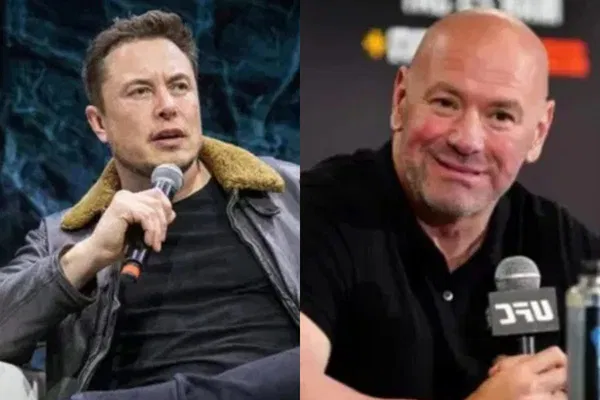Donald Trump has secured victory in the 60th quadrennial presidential election, making him the 47th President of the United States. While his term officially begins on January 20, 2025, the country is already seeing significant shifts, with notable public figures, such as Ellen DeGeneres, reportedly contemplating leaving the U.S. following the election results.

This election has also sparked notable reactions across different sectors, including media and sports. In a social media post, Trump humorously encouraged Elon Musk to consider acquiring major news outlets CNBC and MSNBC, suggesting this would be a bold and transformative move. In response, Musk expressed his agreement, fueling discussions about the evolving role of social media in shaping public discourse.
UFC President Dana White has also weighed in, sharing his thoughts during a recent event. He emphasized the diminishing relevance of traditional media, declaring that it no longer holds the same influence over public opinion. White stated, “The whole country feels like somebody hit the reset button,” and argued that the election was essentially won on the Internet. He further characterized traditional media as one of the least trusted institutions, alongside politicians.
DANA WHITE: “The whole country feels like somebody hit the reset button … Traditional media is dead, and it doesn’t hold the influence that it used to hold. The two most hated people in this world right now are the media and the politicians. Nobody trusts them and nobody… pic.twitter.com/Bvv0ULNhbM
— Chief Nerd (@TheChiefNerd) November 30, 2024
White’s remarks echo sentiments shared by podcaster Joe Rogan, whose show, The Joe Rogan Experience, has become a pivotal platform for modern political and cultural conversations. Rogan’s podcast, which featured Donald Trump in a widely viewed episode, was credited with influencing Trump’s political resurgence. This shift, as noted by critics, highlights the growing power of independent platforms over mainstream media.
Elon Musk also weighed in on this issue, reinforcing the idea that X (formerly Twitter) has emerged as a dominant platform for information dissemination. His statement aligns with White’s and Rogan’s critiques of traditional media, marking a significant shift in how information is consumed in the digital age.
The debate over the influence of traditional media versus social media has become a central topic in public discourse. On shows like The View, hosts such as Joy Behar have questioned the credibility of figures like Rogan, dismissing his influence in jest but inadvertently underscoring the growing competition between mainstream outlets and independent content creators. Rogan, in turn, addressed these criticisms head-on, asserting that traditional media’s reluctance to adapt to changing dynamics has contributed to its declining relevance.
The evolving landscape raises important questions: Is traditional media truly losing its grip on public opinion? Can platforms like X be trusted as unbiased sources of information? The rise of social media has undoubtedly transformed communication, but its vulnerabilities to manipulation and bias remain points of concern. These ongoing debates underscore the shifting power dynamics in the media ecosystem as America navigates its post-election landscape.